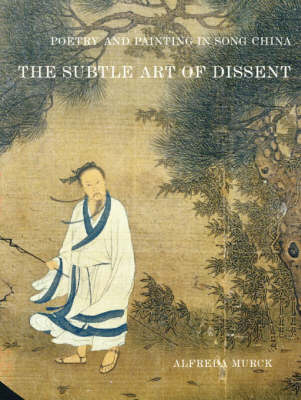Throughout the history of imperial China, the educated elite used various means to criticise government policies and actions. During the Song dynasty (960-1278), some members of this elite found an elegant and subtle means of dissent: landscape painting. By examining literary archetypes, the titles of paintings, contemporary inscriptions, and the historical context, Alfreda Murck shows that certain paintings expressed strong political opinions - some transparent, other deliberately concealed. She argues that the coding of messages in seemingly innocuous paintings was an important factor in the growing respect for painting among the educated elite and that the capacity of painting's systems of reference to allow scholars to express dissent with impunity contributed to the art's vitality and longevity.
- ISBN10 0674002431
- ISBN13 9780674002432
- Publish Date 30 May 2000
- Publish Status Out of Print
- Out of Print 8 October 2008
- Publish Country US
- Imprint Harvard University Press
- Format Hardcover
- Pages 426
- Language English
